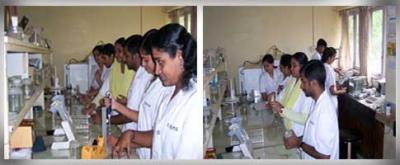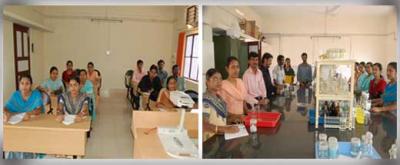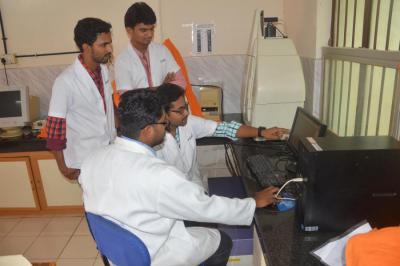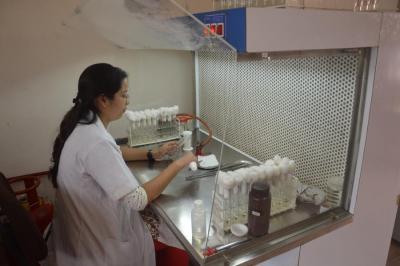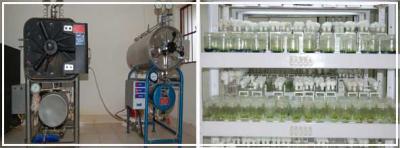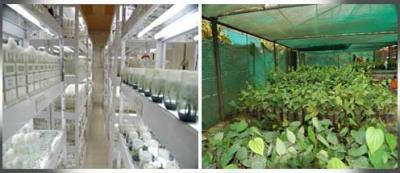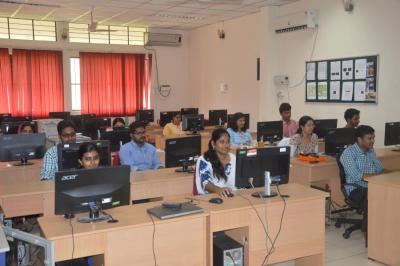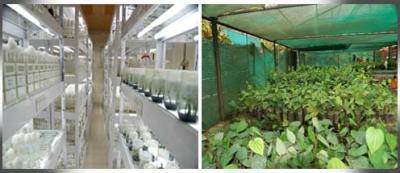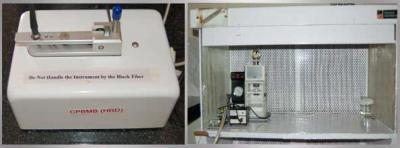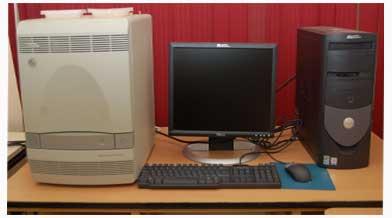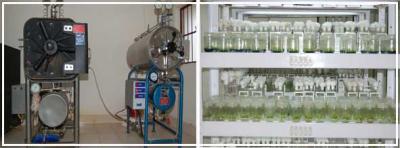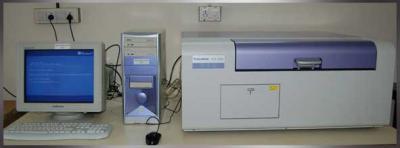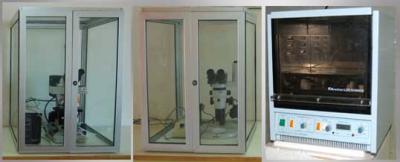A full-fledged Molecular Biology Lab with all basic equipment items was set up in 1998 and the centre is now functioning in IT-BT Complex, College of Horticulture in the main campus of Kerala Agricultural University. It also has a well equipped Tissue Culture lab for research and mass production facility for commercial production of TC plants. The centre has been offering M. Sc. (Ag.) programme in Plant Biotechnology since 2003 and at present the intake capacity is 13 students/ year through Common Entrance Examination in Biotechnology (CEEB) of JNU with DBT support. It also offers Molecular Biology and Biotechnology courses included in the curriculum of B. Sc. Hons. (Ag.), M. Sc. (Ag.) and Ph. D. programmes. A total of 126 students were awarded M. Sc. (Ag.) in Plant Biotechnology till 2019. A Bioinformatics Centre (DIC) funded by DBT is attached to the centre to support storage and retrieval of biological information.
The thrust area identified for research is improvement of horticultural/ field crops through biotechnological tools. The research in the centre is supported by Department of Biotechnology, Department of Biotechnology – Biotechnology Industry Research Assistance Council, Department of Science and Technology, Indian Council of Agricultural Research, Kerala State Council for Science Technology and Environment, Mission for Integrated Development in Horticulture and Kerala State Planning Board. The research activities during the last five years were focused on molecular breeding, plant tissue culture, DNA finger printing, molecular diagnostics, computational biology, genomics, translational biology, metabolomics and nanotechnology.
Research efforts for the next five years will be on marker assisted selection, transcriptome analysis for stress tolerance, fishing out novel genes for quality traits and stress tolerance, exploitation of apomixis for large scale production of quality planting material, RNAi approach for virus resistance, metabolite profiling, metabolome analysis in selected spice crops and nanotechnology for molecular diagnostics. Several externally aided projects were completed and six are now ongoing in the centre. The centre organized three Winter Schools supported by ICAR and eight national level meetings/ workshops/seminars during the period from 2008 to 2016. The Department of Science and Technology has sanctioned FIST funding (2012 to 2017) for strengthening postgraduate teaching and research facilities at the centre.
The equipment available at CPBMB are
-
Phosphor Imager
-
Real Time PCR
-
Bioanalyzer
-
UHPLC
-
HPLC
-
Thermal cyclers – 5
-
2-Dimensional Electrophoresis system and densitometer for proteins
-
NanoDrop spectrophotometer
-
Accelerated Solvent Extractor
-
UV-Vis spectrophotometer
-
ELISA hybridization and reader
-
Bead homogenizer
-
Electrophoresis systems
-
High speed cooling centrifuges
-
Table top cooling centrifuges
-
-80 and -20 deep freezers
-
Western blotter for quick transfer
-
Milli-Q water purification system
-
Gel documentation systems
-
UV trans-illuminator
-
High-end microscopes
-
BOD incubator
-
Orbital destainer shaker
-
Shaking incubators
-
Fume hoods, Laminar airflows, autoclaves and other minor equipment
Facilities in the centre include:
-
Cold room
-
Library equipped with CeRA access
-
DBT-Bioinformatic centre
-
Plant Cell and Tissue Culture facilities
-
Commercial micropropagation unit
-
Animal Cell Culture Laboratory
-
Plant Genome Laboratory
-
RNA Laboratory
-
Metabolomics Laboratory
-
Proteome Laboratory
-
Greenhouses with misting for hardening
-
Hi-Tech polyhouse
-
Research field plots
-
High capacity incinerator for GM crop trials
The Centre organizes regular training programmes in Plant Tissue Culture and Molecular Biology for entrepreneurs, research scholars, scientists and extension officers. During the period from 2008 to 2017, the centre conducted 45 such trainings. On behalf of KAU, the centre is identified as the nodal agency to initiate and co-ordinate Agri-Biotech HRD programmes in the state. The centre is actively involved in the commercial production of tissue culture derived plants and biocontrol agents. The centre is also involved in conduct of farmers’ seminars and farmer groups are involved in participatory seed production programmes.





